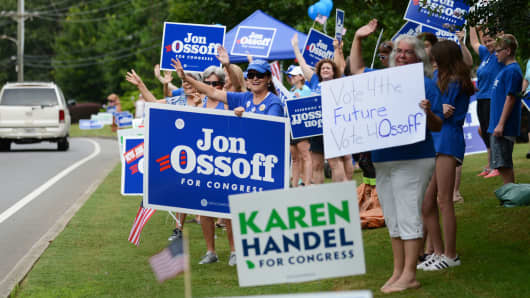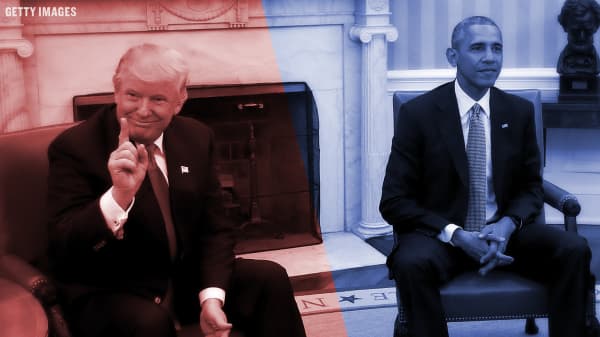The most expensive congressional race in history just wrapped up, but its significance stops at its astronomical price tag. Here's an objective truth about the contest between Republican Karen Handel and Democrat Jon Ossoff: It only mattered to the people of the 6th District in Georgia. They are the only ones who will now be represented by Handel, instead of Ossoff. No one else really should have cared.
The outcome was always going to have a minimal national impact. Many pundits felt the contest would be a signal about the Democrats' chances of retaking the 24 seats they need to reclaim the House in 2018. That was never the case. As it happens, those chances are better informed by history than by the result of a special election.
The Democrats are guaranteed to pick up some seats in 2018. Since the end of the Civil War, the president's party has picked up seats in just three midterm elections. Never has the president's party picked up more than 10. And each time the president's party gained seats in a midterm election they benefited from extraordinary and unusual circumstances. In 1998, the Democrats gained seats because voters reacted negatively to Republican impeachment proceedings against President Clinton. In 2002, the Republicans gained seats because their party benefited from the perception that it was stronger on national security in the aftermath of 9/11. Importantly, in both 1998 and 2002, the president's approval rating sat at higher than 60 percent in the polls.




